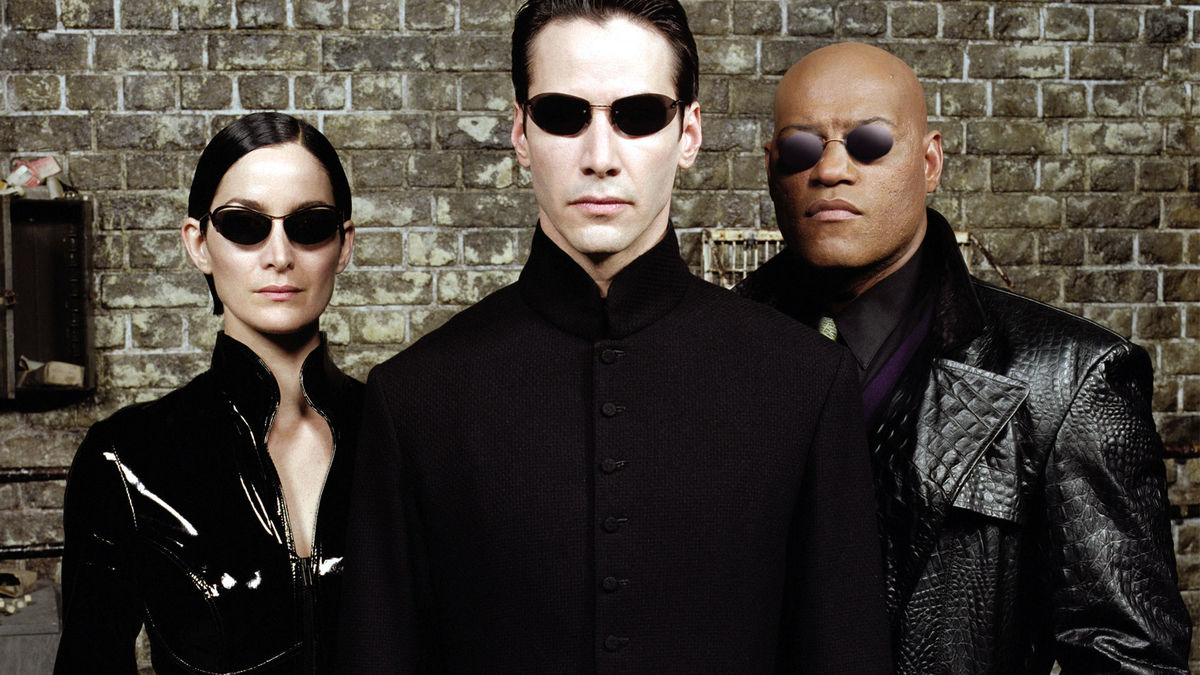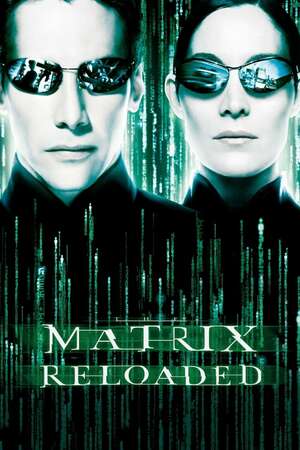
(Note: I wrote this up as a rough summary of my thoughts after watching the series for the first time leading up to the new movie. Copying them over here for posterity.)
Look, I’ve been on the internet for a while now. I know the Matrix sequels have a… less than stellar reputation among fans. There are a lot of issues with these movies, and despite everything I’ve heard, I wanted to go in with an open mind. Having now seen both of the Matrix sequels, I have to say while I do agree with a lot of the criticisms, I feel like there’s a lot more good in these movies than people give them credit for.
I was happy to see the second movie pick up a lot of the threads from the first movie that I thought were really interesting: the colony of liberated humans in Zion, Agent Smith’s sudden turn when he revealed that he, too, wants out of the Matrix, and the idea that there have been several previous attempts at the Matrix before what we’ve been watching are all really interesting and I think they’re paid off pretty well in this movie.
This movie also recontextualized a lot of the myth around The One from the first movie. Some would argue that they completely subverted the meaning of that movie, and you know what? They’re totally right. But that’s another thing I love about this movie. The reveal that The One is just another tool the Matrix uses to rein in its control over the human population was truly unexpected, and the way it makes all of our heroes’ victories feel hollow and meaningless really hammers in just how complete the Matrix’s control over the humans are. Even when they feel like they’re about to grasp ultimate victory, they’re playing right into the hands of the system they cannot control.
After the success of the first movies, the Wachowskis made a pretty clearly noticeable effort to one-up the action of the last movie. Sometimes it works, like the highway sequence, which peaks with Morpheus taking out a katana and slicing a car up its side as it speeds past him, before blowing it up and killing the vampire ghosts driving it in a massive ball of fire. That for me is the Matrix at its best, when the movie drops its serious, grounded facade and gives us exactly what they know we desperately want. The Agent Smith fight, on the other hand, didn’t work as well for me. They clearly bit off more than they could chew, and the increasingly questionable CG on the background Agent Smiths becomes more than a bit jarring after a while. When your CG makes Hugo Weaving look like dril’s Jack Nicholson avatar, it might be time to scale things back a bit.
This movie also brings us to Zion for the first time, where we see just how massive the human resistance cell living there is. In the first movie we only saw the crew of the Nebuchadnezzar, so it wasn’t clear just how many people had been freed yet. So many, in fact, that they’re able to pack a massive cave full for a rousing speech from Morpheus, immediately followed by a techno rave intercut with a really rough sex scene between Neo and Trinity, as if the Wachowskis are trying to warn the audience up front: “if you’re not 100% up for whatever we feel like throwing at the screen, you’d better leave now because we’re not letting up any time soon.” Cave raves, vampire ghosts, orgasm cake. It’s scientifically impossible to predict what’s going to happen in the next scene at any point in this movie.
I guess I should talk about that scene now. You know the one. The scene with the Architect is probably the most well-remembered scene from this movie, next to the Smith fight. Some people love it, others absolutely hated it. This is where most of the movie’s plot and backstory is revealed to Neo and to us: the Matrix has been on this cycle for a long time now, and The One is just another piece in it. No matter what the Matrix did, it couldn’t fully eliminate the variable of human choice, which naturally led to a small subset of humans learning they were in a simulation, breaking out, and banding together to free the rest of their people. To address this anomaly, the One was created, as well as the Agents to oppose him. The One would be prophecised to bring about the end of the Matrix by the Oracle (who was also a program within the Matrix), and the other humans would congregate around him. Eventually this would lead to the One finding his way to the Source, a mysterious point close to the core of the Matrix’s programming, watched over by the Architect, who would present the One with two options: sacrifice himself so that his program could be used to suppress the rest of the humans’ free will, or refuse, allowing the growing corruption caused by free will to bring the Matrix down, killing all the humans connected to it. Either way the Matrix’s robot armies would overwhelm and destroy Zion, meaning only those in the Matrix had a chance at survival. To the Architect’s surprise, Neo breaks from his expected behavior and does not choose to sacrifice himself, believing there might still be another way to save everyone.
I think the main reasons I’ve seen people criticize this scene are 1: the Architect doesn’t clearly explain the entire situation, and 2: it’s a massive exposition dump at the end of an already dense movie. Personally, while I see the issues with it I can’t help but love this scene. Seeing all of the alternate responses Neo could’ve had to each revelation on the TV screens surrounding him really shows how much every action he could take was expected and planned for, and leads me to wonder how many times this conversation has actually happened. (The Architect says six, but who knows if he’s really telling the truth? Maybe he lost count himself.) Of course, throughout all of these alternate scenarios, Neo was always expected to sacrifice himself eventually, because his love for humanity was too strong for him to take any other option. When he chooses the other door though, he says that he’s doing it not for his love of humanity, but his love of Trinity. (Frankly I never really bought the romantic arc between the two, but there you have it.)
I also really like how the Architect is practically grinning over what he thinks is yet another total victory over the humans. He believes that once again he’s managed to put the humans back in their place, and that once Neo is demoralized by his revelations he’ll make the same choice he always has. I do kind of wish we got a bit more in the way of specifics here: Why exactly does Neo choosing not to sacrifice himself mean that the Matrix will collapse? And how does him sacrificing himself stop it? If we want to go way overboard in the computer metaphor, maybe the liberated humans are causing fragmentations in the Matrix’s storage, and allowing too many of them to leave means the Matrix hard drives need to be defragged. Something like that, I guess?
Of course, this movie also ends rather infamously on a “to be concluded” cliffhanger, when Neo and one of the other survivors whose brain has been overwritten by Agent Smith exit the Matrix. I was pretty taken back by that, because I had no idea going in that the movies were so directly tied together, or that the next movie was only 5 months later. The “Agent Smith in the real world” cliffhanger is decent, but it feels kind of underwhelming after all the intense worldbuilding leading up to it. The fact that a rogue program can overwrite a flesh and blood brain is pretty interesting though, and it makes sense: if your brain was developed by birth to interface with a massive interconnected web of machines, it’s not so far-fetched to imagine that your brain would develop to be compatible with their software, or that it could even be partially mechanical (the humans all grow with Matrix connective nodes throughout their bodies, after all). That could also explain how Neo is able to control the Sentinels in the real world. After watching Reloaded I developed a theory that as Neo is the One within the Matrix, the robots in the real world would react to his presence, either instinctually, or to help further sell the illusion that he has powers beyond normal human capability. Of course, if a brain could be overwritten by Agent Smith, maybe Neo’s brain being able to interact with other machines in the real world is plausible too: after all, a human’s brain isn’t so far from a machine at a conceptual level.
To sum up my feelings on The Matrix: Reloaded, I’ll just say that while it’s definitely less cohesive than the first one, I think it has a lot of really well imagined worldbuilding going on, and it builds on the established lore in some genuinely novel ways. It also has a lot more scenes that don’t really feel like they contribute much like most of the Merovingian subplot, and a lot of “the characters go here then they go here then they do this”, like the Merovingian subplot. Following this movie I was, if not excited, at least very curious to see how this trilogy ended, as well as seeing where the franchise could go following it.
